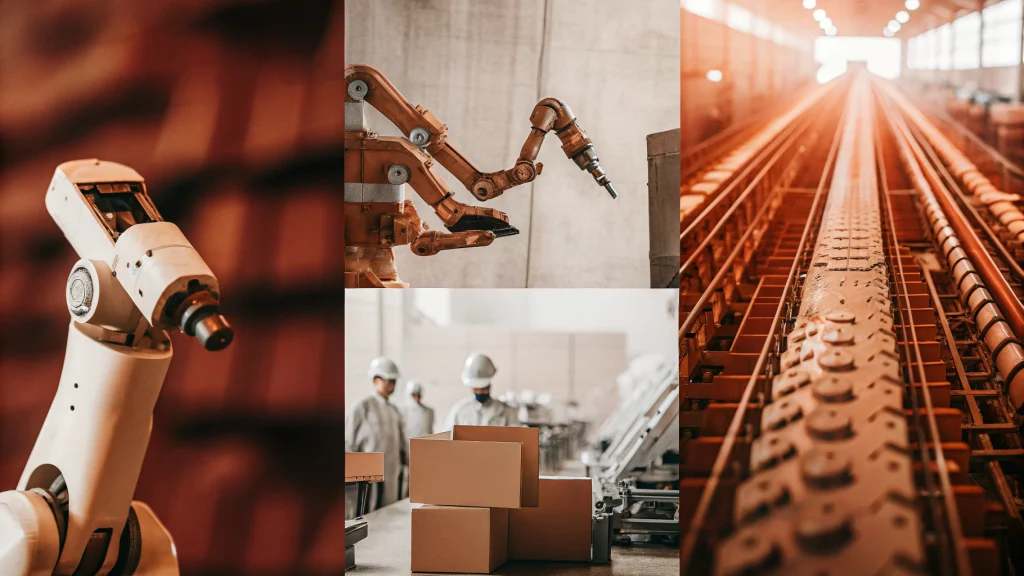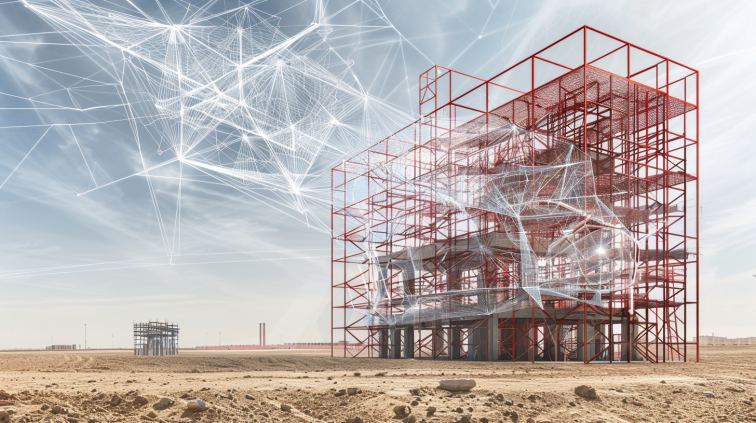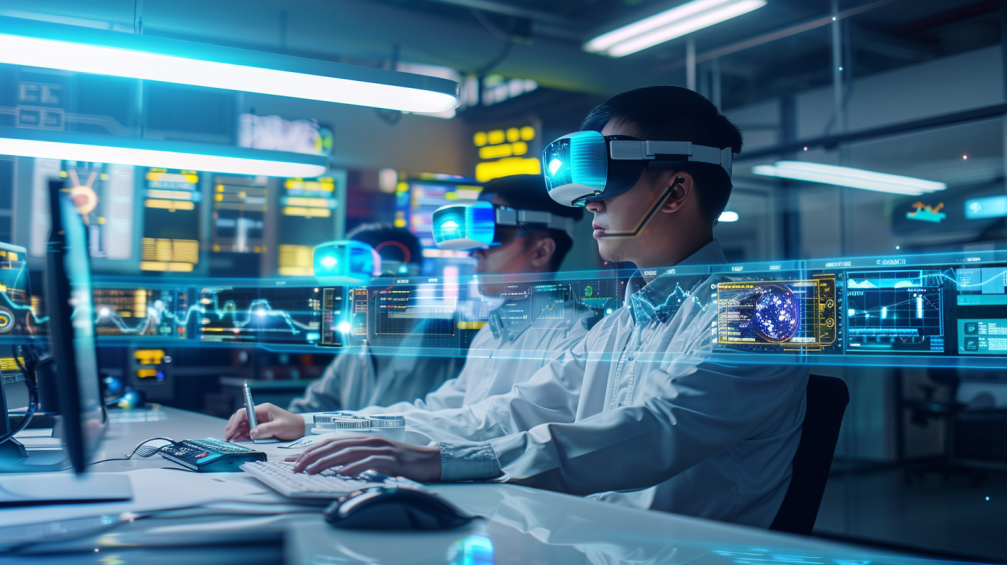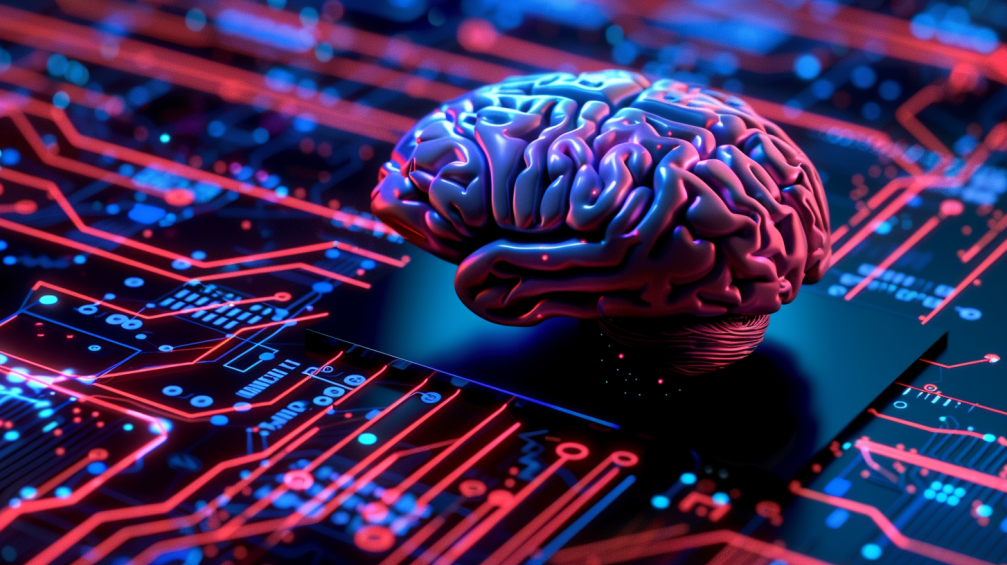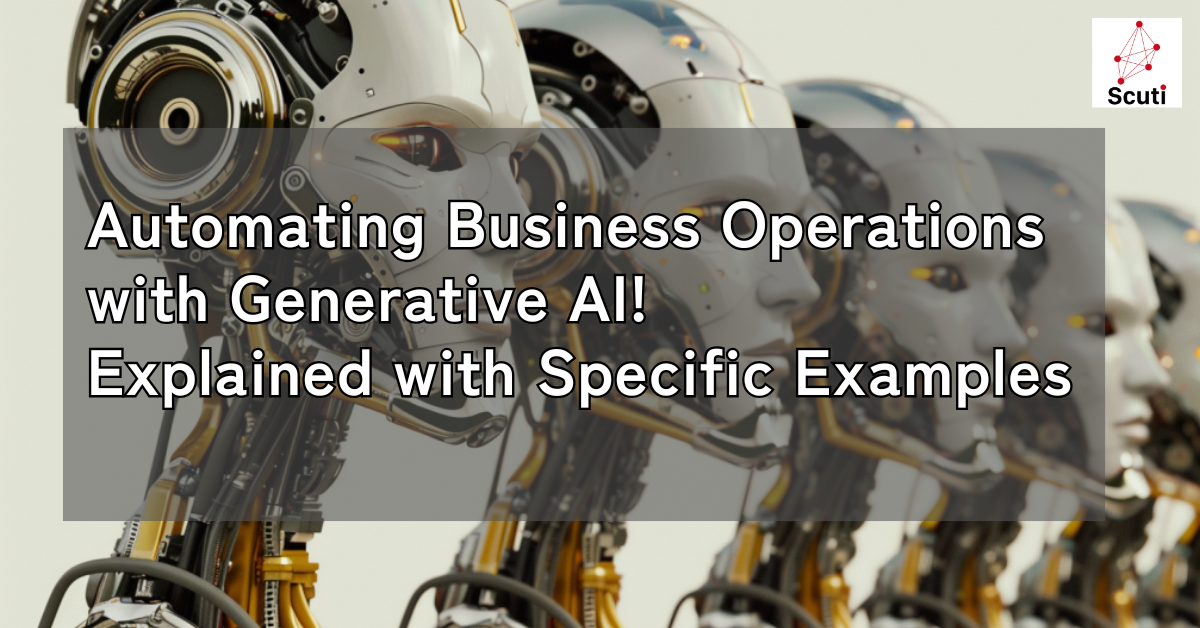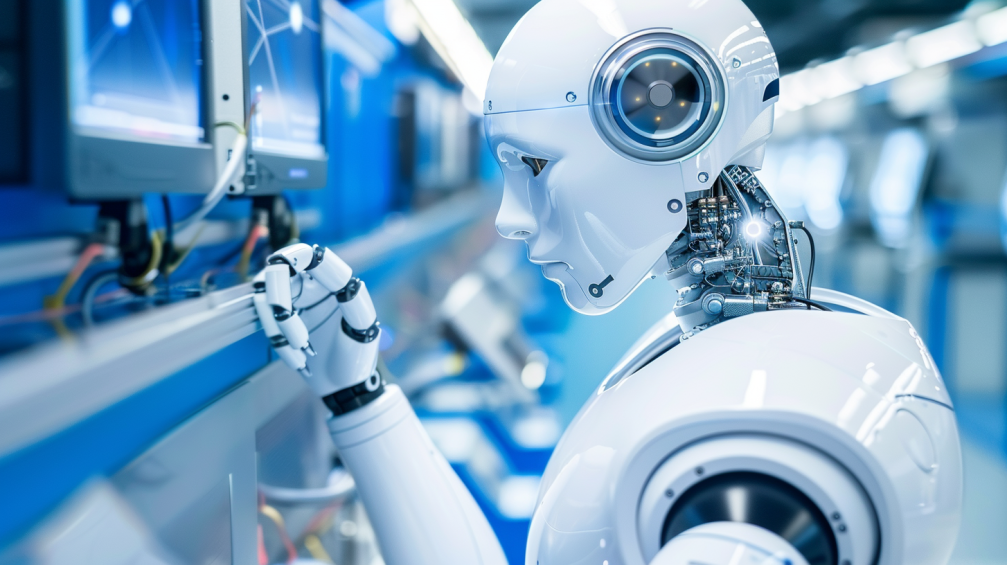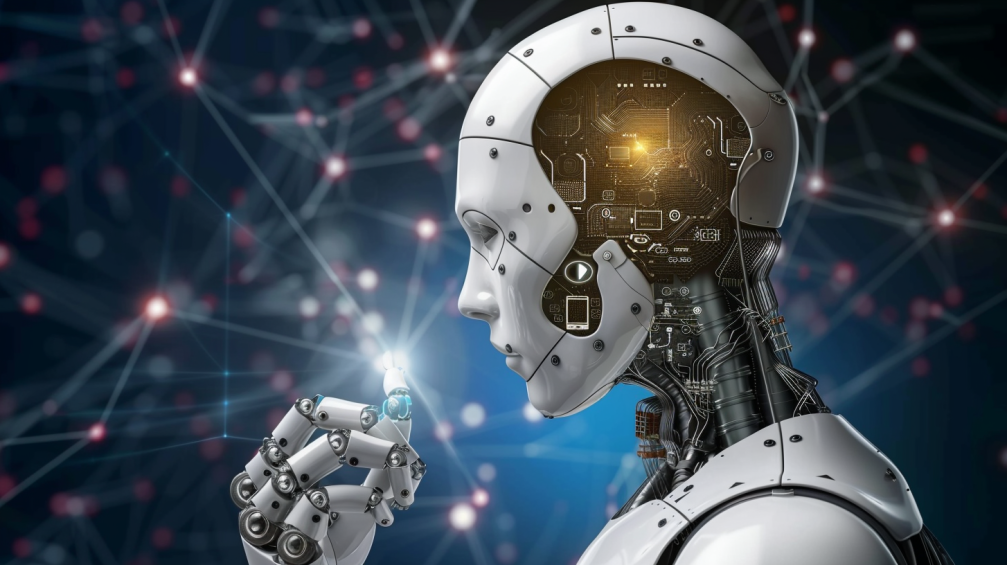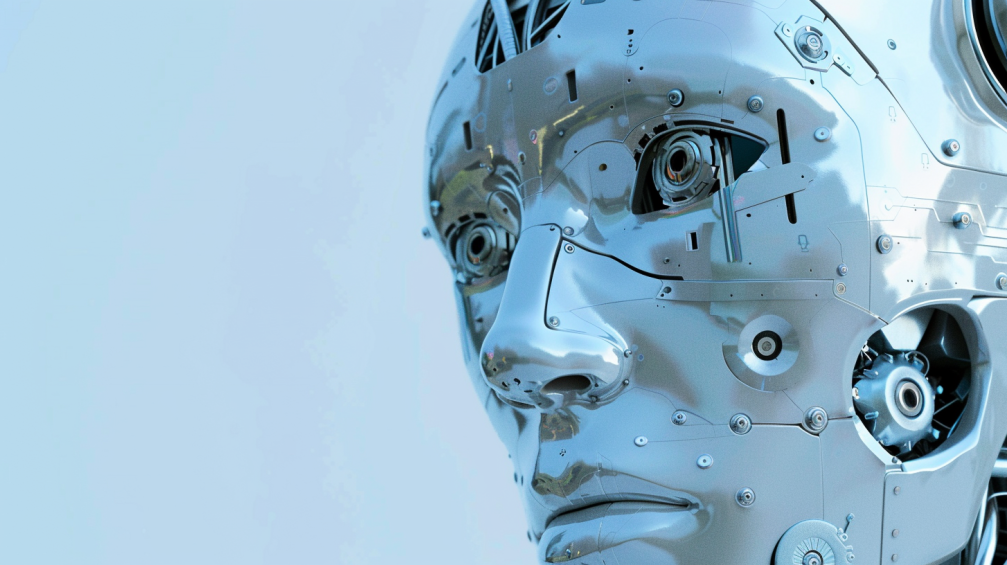
Hello, I am Kakeya, the representative of Scuti.
Our company specializes in services such as Offshore Development And Lab-type Development in Vietnam, as well as Generative AI Consulting.
Recently, we have been fortunate to receive numerous requests for system development in collaboration with generative AI.
Even professionals with expertise in the use of generative AI in manufacturing may be seeking a deeper understanding. Traditionally, the manufacturing industry has been time-consuming and costly, making it difficult to respond swiftly to changes in the market.
However, with the advent of generative AI, every aspect of manufacturing — from product design to supply chain management — is undergoing a dramatic transformation. The market size for generative AI is projected to reach USD 6,398.8 million by 2032, indicating remarkable growth.
In this article, we introduce 10 specific applications of generative AI in the manufacturing industry and provide an in-depth explanation of the challenges during implementation and future outlook. Discover the groundbreaking changes that generative AI is bringing to manufacturing and gain insights to apply them to your business.
Fundamentals Of Generative AI And Its Role In The Manufacturing Industry
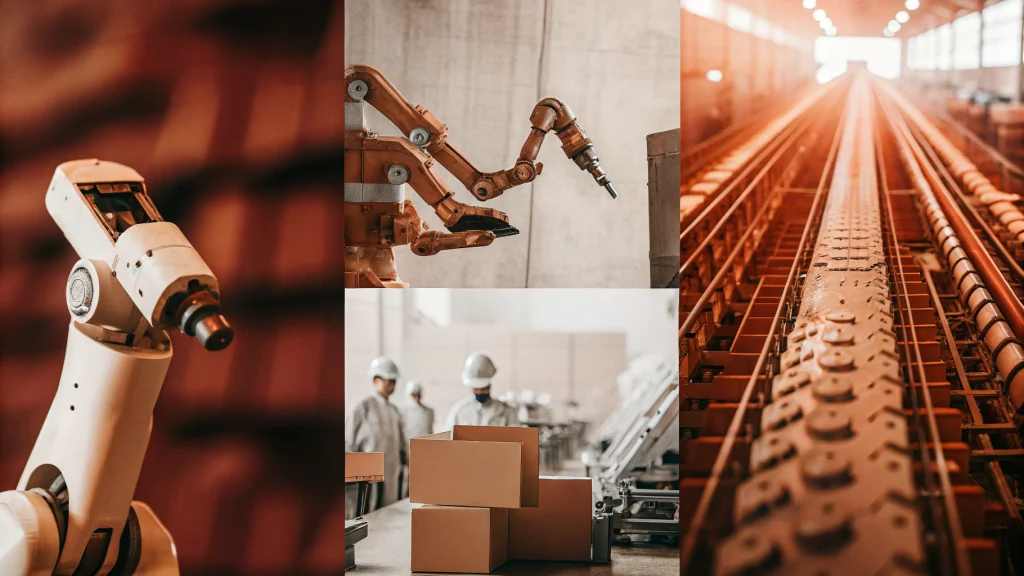
If you want to learn more about Generative AI, be sure to check out this article first.
Related article: Comprehensive Guide To Implementing Generative AI: From Basic Knowledge To Practical Applications And Future Prospects
What Is Generative AI? Differences From Traditional AI
Generative AI is a type of artificial intelligence specialized not only in analyzing existing data but also in creating new content and solutions. It learns patterns from vast amounts of data and has the ability to generate text, images, videos, designs, audio, code, simulations, and more based on user instructions.
While traditional AI performs predictions and analyses based on past data, generative AI is distinguished by its ability to create something new. This creative capability enables the manufacturing industry to generate new value as well.

The Role Of Generative AI In The Manufacturing Industry
In the manufacturing industry, generative AI is utilized across a wide range of areas, including product design, process optimization, predictive maintenance, quality control, and supply chain management. For example, in product design, generative AI can automatically generate numerous design candidates based on the conditions specified by the designer.
This significantly shortens the design process and enables the development of more innovative products. Moreover, generative AI also contributes to improving efficiency across the entire supply chain, helping reduce costs and shorten lead times.
10 Use Cases Of Generative AI In The Manufacturing Industry

1. Product Design: Automatic Generation And Optimization Of Designs
In traditional product design, designers had to manually create drawings and repeatedly go through the process of producing and evaluating prototypes, which required significant time and cost.
However, by utilizing generative AI, designers can simply input product specifications and requirements, and the AI will automatically generate numerous design candidates. This greatly shortens the design process and enables the development of more innovative products.
For example, the aircraft manufacturer Airbus successfully used Autodesk’s generative AI tool to design aircraft components that are both lighter and stronger.
The AI proposed innovative shapes that were previously unthinkable in conventional design, while still meeting constraints such as strength and weight. In this way, generative AI significantly contributes to innovation in product design.
2. Predictive Maintenance: Reducing Downtime Through Failure Prediction
In manufacturing settings, downtime caused by machine failures can lead to significant losses. Traditional maintenance methods have mainly relied on “preventive maintenance,” which involves periodic inspections. However, this approach carries the risk of over-maintenance or unexpected breakdowns. Predictive maintenance using generative AI enables the analysis of sensor data and other inputs to forecast machine failures in advance.
By performing maintenance at the optimal timing, downtime can be minimized.
For instance, Siemens has developed a predictive maintenance system called “Senseye Predictive Maintenance,” which utilizes generative AI. This system analyzes machine operation status and sensor data in real time to detect early signs of failure. As a result, it significantly reduces downtime and contributes to improved productivity.

3. Demand Forecasting: Flexibly Responding To Demand Fluctuations
Accurate demand forecasting is extremely important in the manufacturing industry. Excess inventory leads to increased storage costs, while inventory shortages result in lost business opportunities. Generative AI analyzes past sales data, market trends, economic indicators, and more to predict future demand with high accuracy. This enables optimized inventory management, cost reduction, and maximized profits.
For example, in the retail sector, generative AI is used to forecast demand while taking into account factors such as seasons, weather, and events. This has led to successful optimization of inventory management, allowing businesses to respond flexibly to demand fluctuations and improve customer satisfaction.
4. Customized Manufacturing: Delivering Products Tailored To Customer Needs
As customer needs continue to diversify, demand for customized manufacturing is increasing. However, traditional customized manufacturing has faced challenges such as increased complexity in design and production processes, leading to higher costs and longer lead times. By utilizing generative AI, it is possible to automate product design based on individual customer requests and achieve efficient customized manufacturing.
For example, in the apparel industry, services have emerged that use generative AI to automatically design clothing tailored to a customer’s body shape and preferences, and produce it on demand. This enables rapid delivery of optimal products to each customer, contributing to higher customer satisfaction.
5. Supply Chain Management: Achieving Efficient Procurement And Logistics
Streamlining the supply chain is a critical challenge for the manufacturing industry. Generative AI optimizes various processes across the entire supply chain, including demand forecasting, inventory management, and transportation route optimization. This enables cost reduction and improved efficiency from procurement to logistics.
For example, in the logistics industry, generative AI is being used to optimize delivery routes and improve truck loading efficiency. As a result, transportation costs are reduced and delivery times are shortened, enhancing the overall efficiency of the supply chain.
6. Quality Control: Detecting Defective Products And Improving Quality
Product quality control is extremely important in the manufacturing industry. Traditional quality control often relies on visual inspections by human inspectors, which carries the risk of human error and oversight.
However, by utilizing generative AI, it becomes possible to automatically detect defective products using technologies such as image recognition. This leads to improved efficiency and accuracy in quality control.
For example, in the automotive industry, generative AI is being used to automatically detect scratches on car bodies or inconsistencies in paint application. As a result, human inspection errors are reduced, enabling the delivery of high-quality products.

7. Workforce Management: Optimal Staffing And Task Allocation
In manufacturing sites, proper staffing and task allocation are essential. Generative AI analyzes factors such as employees’ skills, experience, and workload to suggest the optimal assignment of personnel and tasks.
This leads to improved operational efficiency and better utilization of the workforce.
For example, in warehouse management, generative AI is being used to streamline picking operations and optimize staff allocation. As a result, work time is reduced, costs are lowered, and overall productivity is enhanced.
8. Research And Development: Accelerating The Development Of New Materials And Products
The development of new materials and products is essential for manufacturers to maintain their competitiveness. Generative AI analyzes vast amounts of material and experimental data to suggest potential new materials and product candidates.
This enables greater efficiency and speed in research and development.
For example, in the chemical industry, generative AI is being used to search for candidate compounds for new drugs and to predict material properties. As a result, the R&D process is accelerated, and the time to market is significantly reduced.
9. Document Creation And Compliance: Improving Efficiency Through Automation
In the manufacturing industry, it is necessary to create various types of documents, such as product specifications, manuals, and reports. Generative AI can automate the creation of these documents, significantly improving efficiency.
It also features the ability to automatically check compliance with laws, regulations, and industry standards. This helps companies reduce the time and cost associated with documentation while making compliance easier to maintain.
For example, when creating product specifications or manuals, generative AI can automatically collect the necessary information and generate accurate and timely documents.
As a result, work efficiency is improved, and high-quality documentation can be delivered.
10. Energy Consumption Optimization: Reducing Costs And Environmental Impact
In the manufacturing industry, reducing energy consumption is important both for cutting costs and minimizing environmental impact. Generative AI analyzes energy usage within the factory in detail and proposes optimal energy consumption patterns.
This leads to improved energy efficiency and cost reduction.
Challenges In Implementing Generative AI

1. Quality and Quantity of Data
The performance of generative AI heavily depends on the quality and quantity of the data used for training. In manufacturing sites, large volumes of data—such as sensor data and production data—are accumulated, but these are not always suitable for training generative AI. To improve data quality, tasks such as data cleaning and preprocessing are required.
2. Security And Privacy
The training of generative AI may involve the use of highly confidential data. Therefore, ensuring data security and privacy is extremely important. It is necessary to implement appropriate security measures to prevent data leaks and unauthorized access.
3. Ethical Issues
Generative AI has the potential to produce content that contains misinformation or bias. Therefore, it is essential to thoroughly consider the ethical issues surrounding its use. Establishing and adhering to ethical guidelines is required.
The Future Of Manufacturing Brought By Generative AI

Generative AI is expected to contribute to the manufacturing industry by automating and streamlining various processes, leading to increased productivity, cost reduction, improved quality, and shorter lead times. Moreover, generative AI holds the potential to generate innovative ideas and solutions that may not be conceived by humans.
In the future, the use of generative AI will further expand across all areas of manufacturing, driving the evolution toward a smarter, more efficient, and more sustainable industry.




